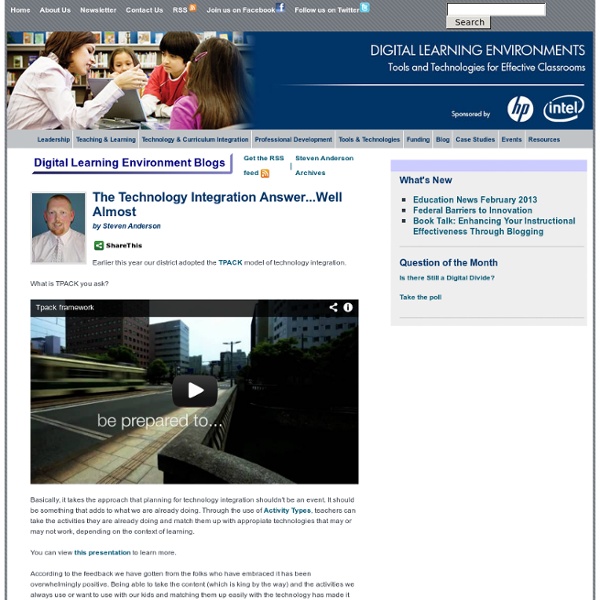Technology: Two Ideas to Move From Enduring It to Employing It
It’s a complaint we hear from both teachers and parents today: the kids are getting lost in technology. Once they start a video game, they wander into another state of mind. Once they peer at their smart phone screen, they get lost gazing at the glow. Maybe…but it doesn’t have to be. When it comes to technology, leaders/educators live in one of three camps: Endure it – They feel uncomfortable and wish it would go away.Enjoy it – They love new gadgets, but to them it’s all entertainment.Employ it – They not only embrace it, but use it to reach their goals. Susanne Lajoie, from the Department of Educational and Counseling Psychology lives in Camp #3. Lajoie is the Director of a newly funded “Learning Environments Across Disciplines” (LEADS) project in Canada. What I love about this is that educators are finally seeing that just like TV in the 1960s, technology is not evil, it is a neutral tool that we can harness to do good and to educate. The Bottom Line for You and Me? I can hardly wait.
Why Technology Truly Matters To Education.
This is the kind of story that makes me love what I do. If I’m ever feeling like the work I do (integrating technology) is not important, I should just watch this video and read the story. This story dovetails nicely with this week’s story on how we’re about to see the end of teaching as we know it . Thanks to the Google Blog for shining a light on the story of Morgan, a 16-year-old student in Wells, Maine. Morgan has a learning disability but has been able to overcome much of the issues using technology such as Google Voice Search. While this is obviously an ad for Google’s products, it is an important look at the larger picture: technology enables learning like never before. Here’s the key parts of the story from the Official Google Blog : We all have memories of the great teachers who shaped our childhood. One teacher who has taken advantage of the web as an educational tool is Cheryl Oakes, a resource room teacher in Wells, Maine.
Tech Integration Training
HOW TO: Make Your QR Codes More Beautiful
Hamilton Chan is CEO and founder of Paperlinks. With the free Paperlinks iPhone app, featured previously by Apple as the #1 New & Noteworthy app, consumers can scan and view QR code content with a native app experience. Paperlinks also provides a powerful platform for generating QR codes, hosting content and tracking their performance. The QR code: A thing of beauty or an eyesore? Fortunately, QR codes are malleable and can be redesigned in truly extraordinary ways, while still maintaining their scanability. QR codes have so much potential from a design perspective, so let’s take a look at a few tricks and techniques you should keep in mind when designing a code to enhance your brand and appeal to your audience. 1. The easiest way to add branding power to your code is to add color to it. A “reversed out” code, where the background is dark and the boxes are light colored, is generally not recommended. 2. One of the QR code’s greatest aesthetic flaws is its numerous hard edges. 3. 4.
QR Codes
The Carnegie Cyber Academy - An Online Safety site and Games for Kids
Digital Citizenship
Professional Development for Educators
What is the Arizona Technology Integration Matrix? The Technology Integration Matrix (TIM) illustrates how teachers can use technology to enhance learning for K-12 students. The TIM incorporates five interdependent characteristics of meaningful learning environments: active, collaborative, constructive, authentic, and goal directed (Jonassen, Howland, Moore, & Marra, 2003). The TIM associates five levels of technology integration (i.e., entry, adoption, adaptation, infusion, and transformation) with each of the five characteristics of meaningful learning environments. What is in each cell? Within each cell of the Matrix one will find two lessons plans with a short video of the lesson. Download PDF of the Technology Integration Matrix Print this page Characteristics fo the Learning Environment ← → Levels of Technology Integration Into the Curriculum How should the Technology Integration Matrix be used? Use this TIM tutorial to get more information on how to use it in your classroom practice.



